Current status and future of the ASEAN aviation market
- Aviation and Airport
The 1st AIRO Business Seminar
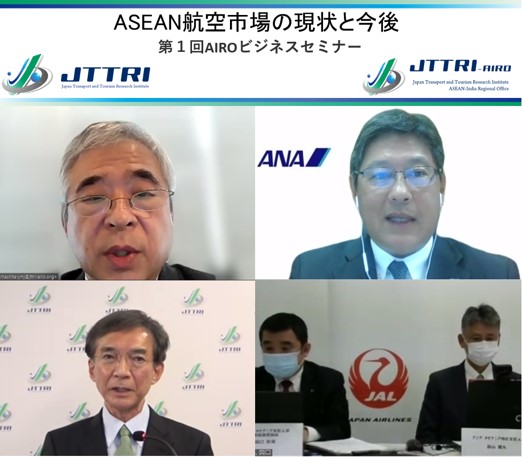

| Date / Time | Fri, Dec 10,2021 3:00pm-5:00pm |
|---|---|
| Lecturer | The 1st AIRO Business Seminar Date / Time:Fri,Dec,10,2021 3:00pm-5:00pm Venue: Online (Zoom webinar) Theme:Current status and future of the ASEAN aviation market(Tentative tittle) ①Special Report Theme:Overview of the ASEAN region regarding COVID-19 Reporter:YAMASHITA Yukio Senior Director and Senior Research Fellow Japan Transport and Tourism Research Institute ASEAN-India Regional Office(JTTIR AIRO) ②Lecture&Comment Theme (1)Current Status and Future of ANA in the ASEAN Aviation Market Lecture:KANDA Shinya Senior Vice President, Asia & Oceania General Manager, Singapore Office All Nippon Airways Co.,Ltd.(ANA) Theme (2)The Current situation of the Asian aviation market under the COVID-19 pandemic, and JAL's initiatives Lecture:HATAKEYAMA Takahisa Senior Vice President, Asia & Oceania Region Japan Airlines Co. Ltd. Commentator:FUJIMURA Shuichi Visiting Research Fellow, Japan Transport and Tourism Research Institute (JTTRI), Full-time Advisor, All Nippon Airways Co.,Ltd.(ANA) ③Panel discussion and Q&A session Coordinator:YAMAUCHI Hirotaka,President for Research, JTTRI Panelists: Reporter and Lecturers, Commentator |
Event Summary
As the new coronavirus infection spreads around the world and movement restrictions have been taken at home and abroad, airlines around the world have faced unprecedented declines in demand. In particular, the impact on international flights is still continuing worldwide, so some airlines are being forced into bankruptcy, and the ASEAN region is no exception. In this seminar, we will connect online with representatives of Japan's two major airlines in the Asia-Oceania region and researchers in AIRO, and together with our visiting researchers in Tokyo, the effects and responses of the above-mentioned infectious diseases of airlines in the ASEAN region, and each country. We will introduce the policy response of the government, requests to the Japanese government, and efforts for aviation reconstruction from the field. In addition, in discussions with these speakers and questions and answers with viewers, discussions will be held from several perspectives, such as issues to be overcome.
Program of the seminar is as the following
| Opening Remarks |
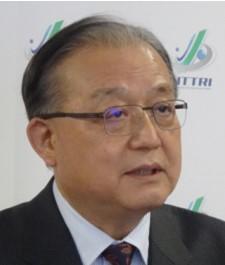
SHUKURI Masafumi |
|---|---|
| Special Report |
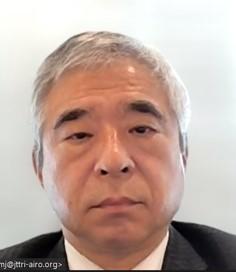
YAMASHITA Yukio |
| Lecture: Theme1 |
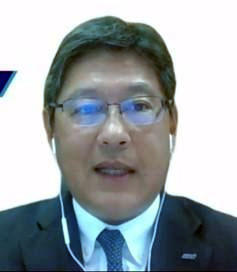
KANDA Shinya |
| Lecture: Theme2 |
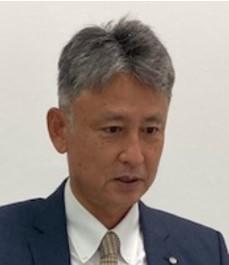
HATAKEYAMA Takahisa |
| Commentator |
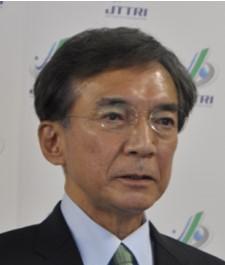
FUJIMURA Shuichi |
| Panel discussion and Q&A session |
<Coordinator>
YAMAUCHI Hirotaka President for Research, Japan Transport and Tourism Research Institute (JTTRI) 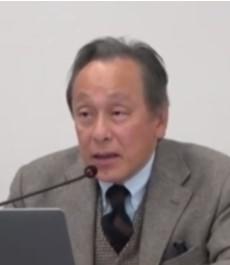 Panelists: Reporter,Lecturers and Commentator |
| Closing Remarks |
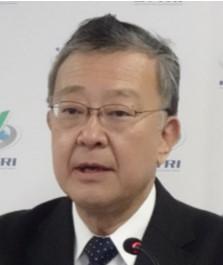
OKUDA Tetsuya |
Outline of the seminar
The 1st AIRO Business Seminar“Current Status and Future of the ASEAN Aviation Market”
The outline of the lectures and panel discussion is as described below.
1. Special report: YAMASHITA Yukio, Senior Research Fellow and Senior Director, ASEAN-India Regional Office(AIRO), Japan Transport and Tourism Research Institute (JTTRI)
- The infection status in ASEAN countries is serious in Singapore and Brunei in terms of the number of infected people per 1 million population, compare with Indonesia and Vietnam where the number of new COVID-19 infected cases had been larger, but the number of deaths in Singapore and Brunei is kept low even among ASEAN countries.
- There are more types of COVID-19 vaccines available for domestic use and quarantine exemption in ASEAN countries compared to Japan, EU and the US.
- As for the entry restrictions due to COVID-19, ASEAN countries are divided into two groups: countries, such as Thailand and Singapore, that are positive for relaxing the entry restrictions, and countries, such as Indonesia and Vietnam, that are passive for relaxing the entry restrictions.
- Through the comparison of the actual number of international and domestic passengers at major airports in Thailand, Philippines and Singapore in 2019 and 2020 which means before and after the outbreak of COVID-19, the decline in the international passengers is very sharp, but the airports in Thailand and Japan still have domestic passengers while the major airports in Philippines have no record of domestic flights and the major airport in Singapore have no domestic flights.
- As for the international cargo, though the volume decreased in 2020 as compared to that in 2019, cargo movement has been steady thanks to the shift of marine cargo to air cargo.
- There have been increasing media reports of positive movements of ASEAN airlines, such as strengthening of air cargo handling by ASEAN airlines, Bamboo Airways' opening of direct flights between Hanoi and London, Vietnam Airlines' operation of direct flights between Ho Chi Minh and San Francisco, and expansion into home-delivery and ride-hailing service sectors by airlines group companies. There have also been media reports that the Thai Prime Minister and the Minister of Tourism and Sports have said that the border will not be closed and there is no change in the policy of opening the country.
2. Lecture 1: KANDA Shinya, Senior Vice President, Asia & Oceania, General Manager, Singapore Office, All Nippon Airways Co., Ltd. (ANA)
- The situation of the COVID-19 pandemic in ASEAN countries is different from country to country. In Singapore and Malaysia, the governments are aggressively testing to find infected individuals, and the vaccination coverage is also high.
- The number of ANA's flights and passengers in ASEAN countries is on a recovery trend thanks to the relaxation of entry restrictions and requirements in each country. As part of initiatives under the COVID-19 pandemic, ANA has been working on ANA Care Promise for ensuring hygiene and cleanliness, operation of relief charter flights and extra flights, Comprehensive Quarantine Travel Service for Passengers Arriving in Japan, projects to make customers feel like they are traveling, and preparation for introduction of digital certificate apps.
- In terms of cargo business, the performance has continued to be at over 200% year-on-year partly thanks to the external environment. ANA is also working on building aggressive and flexible networks, BCP operations, vaccine transportation, etc.
- Although various entry restrictions and quarantine measures have been implemented in ASEAN countries, Japan is not included in the list of countries eligible for Singapore's Vaccinated Travel Lane (VTL) because quarantine is always required and vaccination digital certificates cannot be prepared. Therefore, there are concerns about the flow of third countries between Singapore and North America to flow out to direct flights and flights via Korea, and decline in competitiveness of Japan as a destination. As a Japanese carrier, he hopes for quick response.
- The air travel demand in ASEAN is expected to recover to about half of the pre-pandemic level in the first half of FY2022, but the situation may change due to the influence of the Omicron variant.
- In terms of production volume of major airlines in Japan and ASEAN, Singapore Airlines has made a remarkable recovery partly thanks to the effect of VTL. ANA has also been steadily recovering, but the key to business recovery is to accelerate the timing to compete with strong cargo flights to maximize revenues.
- With respect to travel in the days of COVID-19, it is important to show how ANA appeals the value of travel to bring about pent-up demand in consideration of perspectives of “infection and health concerns,” “regulatory and restriction burden” and “current trends and sentiments” and also to show the attitude of the airline as a way of sustainable travel in the ESG era.
- As for what we should do in the future, ANA and the aviation industry should support travel, revitalize visits to Japan and promote ESG management, and the national government should improve the travel environment and cooperate with the rest of the world. While countries around the world are relaxing entry restrictions and quarantine measures, it is necessary to assess the impact of the Omicron variant, but he believes that Japan can also relax the restrictions depending on the partner country, vaccination status and other factors.
3. Lecture 2: HATAKEYAMA Takahisa, Senior Vice President, Asia & Oceania Region, Japan Airlines Co. Ltd. YOGUCHI Akihide, Vice President, Marketing and Strategy Research, Asia & Oceania Region, Japan Airlines Co. Ltd.
The general situation of COVID-19 Pandemic has calmed down compared to earlier periods as vaccination has progressed. In Japan, the number of infected individuals and deaths has decreased sharply. In Europe and the US, the number of infected individuals has recently increased sharply, but the number of deaths is lower than before. In Asia, where the progress of vaccination is lagging behind Japan, Europe and the US, except for few countries, the situation in terms of the number of infected individuals and deaths vary from country to country.
As for the impact of COVID-19 on the global air travel demand, it bottomed out in April 2020. The domestic air travel demand has been rapidly recovering since May 2021 while the recovery in the international air travel demand is still slow. On the other hand, the air cargo demand has been exceeding the pre-COVID-19 level since around November 2020. JAL currently operates cargo flights using its passenger flights on all routes. The air travel demand is largely affected by the entry restrictions imposed in each country. Especially the quarantine isolation has been the heavy burden to travelers whereas in Europe and the US, the authorities have changed their policies towards the concept of “With the Covid” which exempts travelers from quarantine if they are vaccinated.
In the seminar, the presenter has introduced several approaches and measures taken by the governments such as the “Vaccine Travel Lanes” in Singapore or the “Sandbox” trial in Thailand, an attempt to recover the traveler’s flow. The presenter also talked about the unique initiatives by Asian airlines such as Singapore Airlines, Thai Airways and AirAsia while the COVID-19 pandemic had a serious impacts on their business and financial performances.
As JAL's business performance has also been greatly affected, the presenter introduced various measures of JAL performed in the Asian region, in line with the finance strategy, the business strategy (restructuring of business model and initiatives for safety and security) and the ESG strategy set forth in JAL Group's new medium-term management plan with the aim of reviving their business and financial performances.
The presenter recognizes that the severe restrictions imposed by the Japanese authority, such as the suspension of visa issuance, restriction on the number of entrants, quarantine isolation, or the ban on the use of public transportation are disrupting the recovery of the economic activities in Japan.
The presenter has made following 3 recommendations which also involves measures to be taken on the national level, that are beyond the scope of self-help efforts by individual companies and industries.
(1) Improving consumer sentiment (Eliminate the risk of disease, remove the complex procedures required by each country which is causing an uneasy sentiment for traveling, and respond appropriately to the “Changes in the consumption behavior” on travel which has been long restricted.)
(2) Reducing travel costs and simplifying procedures (Reduction of testing, quarantine, insurance burden, etc.)
(3) Relaxing entry regulations and standardizing basic rules globally (Relax or end the visa suspension, quarantine measures, etc., use of digital technology, and establish global standards for the effective types of vaccines etc.)
4. Lecture 3: FUJIMURA Shuichi, Visiting Research Fellow, Japan Transport and Tourism Research Institute (JTTRI), and Full-time Advisor, All Nippon Airways Co., Ltd. (ANA)
Airlines based in ASEAN are currently facing a major turning point. The recovery in international flight demand is far behind that in other regions such as Europe and the US partly because vaccination has been delayed in ASEAN countries, except for some countries such as Singapore, conservative border controls and quarantine systems have been adopted, and all the airlines are suffering from huge deficits.
Under these circumstances, the Singapore government has provided Singapore Airlines with financial support totaling approximately 1.7 trillion yen, and Singapore Airlines is the only one that has continued to maintain a sound financial structure even though, like other competitors, it posted a huge loss for the fiscal year 2020.
On the other hand, airlines such as Malaysia Airlines, Garuda Indonesia, Thai Airways International and Philippine Airlines have been in a chronic state of deficit since before COVID-19, their financial structures have been rapidly deteriorated due to COVID-19 and they have been forced into bankruptcy or are facing a threat of bankruptcy. While they continue to negotiate with their creditors for debt reduction, they are under pressure to sell their assets including aircraft to downsize their networks.
Malaysia Airlines (a member of Oneworld) and Garuda Indonesia (a member of SkyTeam) have already significantly reduced their own European routes, and have been shifting to a strategy to secure the flow from Europe by code-sharing with Singapore Airlines (a member of Star Alliance) on European flights, which Singapore Airlines has continued to operate, beyond the alliance framework. In the future, it will be necessary to keep a close eye on the movements of airlines based in ASEAN including Thai Airways International and Philippine Airlines.
5. Panel Discussion and Q&A Session
A panel discussion and a Q&A session were held with Mr. Yamauchi, President for Research, Japan Transport and Tourism Research Institute, as the coordinator. The main discussions are as follows.
[Panel discussion]
- Information from the fields was realistic, and I was able to have a better understanding about how the airlines are making desperate efforts for reconstruction, such as code-sharing beyond the alliance.
- Looking ahead to the post-COVID-19, it seems to be also important to consider what we can do further to reduce the obstacles (barriers) to travel, using COVID-19 as an opportunity, to expand the international travel in the future.
- With regard to the relaxation of the entry restrictions in Japan, it seems necessary to make further efforts by referring to the efforts in other countries for coexisting with the coronavirus and the speed of making such efforts. (In particular, expansion of the types of vaccines that can be used as a condition for entry into Japan, promotion of harmonization with major countries for the vaccine passports and negative test certificates, etc.)
- The reasons for the recent significant decrease in the number of infected individuals in Japan are considered to be because of the high vaccination coverage and the inherent high hygiene awareness of the Japanese people.
[Main questions and answers]
Q: Isn't it possible that stopovers in Japan have been avoided due to Japan's strict border control measures?
A: Japan had been popular as a transit point because of reasons such as the ease of transit and on-time flights, but even after the recent relaxation of the border control measures, some say that they are still strict, and it cannot be denied that passengers from overseas may be avoiding transit in Japan.
Q: I would like to know about horizontal cooperation among airlines and possible cooperation in the future.
A: As for cooperation among airlines, there is originally a core global alliance, but the gap between companies has widened due to COVID-19, and there are new regional partnerships and partnerships between airlines over extremely long distances through launch of direct flights, and such partnerships are expected to increase in the future.
Q: With regard to the recently concluded aviation agreement between ASEAN and EU, what kind of strategy do you think will be employed to utilize this agreement in the future? How about the utilization of beyond rights?
A: I think that there will be natural strategic differences in negotiations between EU, which is a tightly-knit aggregation, and ASEAN, which is still loosely connected and where each country has sovereignty and administers justice with its own rules. In particular, EU is keen to negotiate aviation as the EU, and with regard to the agreement with ASEAN, I feel that EU sees the value in bringing negotiations to conclusions between regional economic federations. As for the utilization of beyond rights, it is likely that the necessity of the beyond rights will diminish in the future because of the improved performance of aircraft and the extension of flight ranges.
Q: What do you think about the differentiation between virtual travel and real travel after COVID-19?
A: The concept of virtual travel has existed since before COVID-19, and I believe that they will continue to coexist in a mutually complementary relationship.
Q: Are there any plans for new destinations in the ASEAN region?
A: In the midst of the COVID-19 pandemic, we cannot foresee new destinations. We would like to seek them after the COVID-19 is over. As the demand for business trips is decreasing, it is a challenge to determine where we can fly to in the future.
End of document


